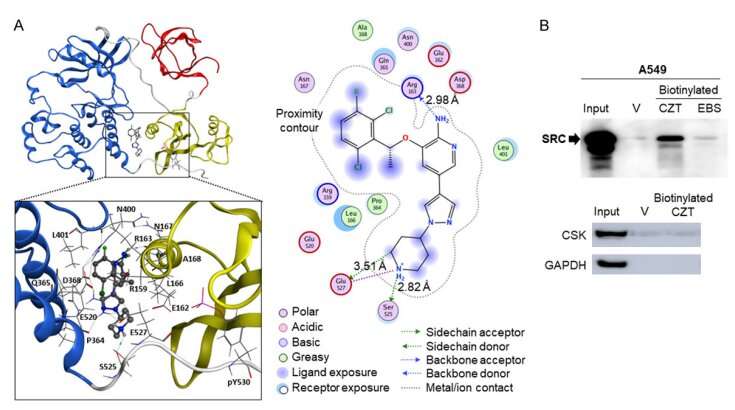This article has been reviewed according to Science X's editorial process and policies. Editors have highlighted the following attributes while ensuring the content's credibility:
fact-checked
trusted source
proofread
Existing drug shows promise treating most prevalent type of lung cancer

A University of Kentucky Markey Cancer Center research team identified an existing cancer drug that shows promise as a treatment for the most common type of non-small cell lung cancer.
The study published in the American Journal of Cancer Research shows that the Food and Drug Administration-approved medication crizotinib (also known by its name brand, Xalkori) is effective at inhibiting the growth of non-small cell lung cancer with the most common genetic mutations.
Lung cancer is the leading cause of cancer-related deaths in the U.S., with non-small cell lung cancer accounting for approximately 80%–85% of cases. Certain genetic mutations are linked to non-small cell lung cancer, with mutations in the KRAS and EGFR genes the most common.
As most cases of lung cancer with KRAS or EGFR mutations develop resistance to standard-of-care treatments, identifying another therapy option like crizotinib is especially promising, says the study's principal investigator Vivek Rangnekar, Ph.D., associate director of the UK Markey Cancer Center and the Alfred Cohen Chair in Oncology Research.
"If further validated through clinical trials, the repurposing of crizotinib could have a significant impact on patient care," said Rangnekar. "By considering safe and already approved drugs for subsequent lines of treatment, particularly when cancer becomes resistant to standard therapies, medical professionals can offer effective treatment options while minimizing the adverse effects associated with aggressive treatments."
Rangnekar's team screened a library of more than 1,300 FDA-approved compounds to identify drugs capable of killing lung cancer cells with KRAS and EGFR mutations. They found that crizotinib, a drug used to treat lung cancer expressing ALK mutations, also inhibited the growth of tumors with KRAS or EGFR mutations.
Crizotinib selectively kills cancer cells by inducing the secretion of a tumor suppressor protein called Par-4. Rangnekar first discovered Par-4 and its role in cell death in prostate tissue in 1993. Since then, subsequent studies revealed that Par-4 is a tumor suppressor and that increased expression of Par-4 prevents tumor growth.
More information: Burikhanov R, Ganguly S, et al. Crizotinib induces Par-4 secretion from normal cells and GRP78 expression on the cancer cell surface for selective tumor growth inhibition, American Journal of Cancer Research (2023). www.ncbi.nlm.nih.gov/pmc/articles/PMC10077052/ PDF: e-century.us/files/ajcr/13/3/ajcr0149421.pdf


















